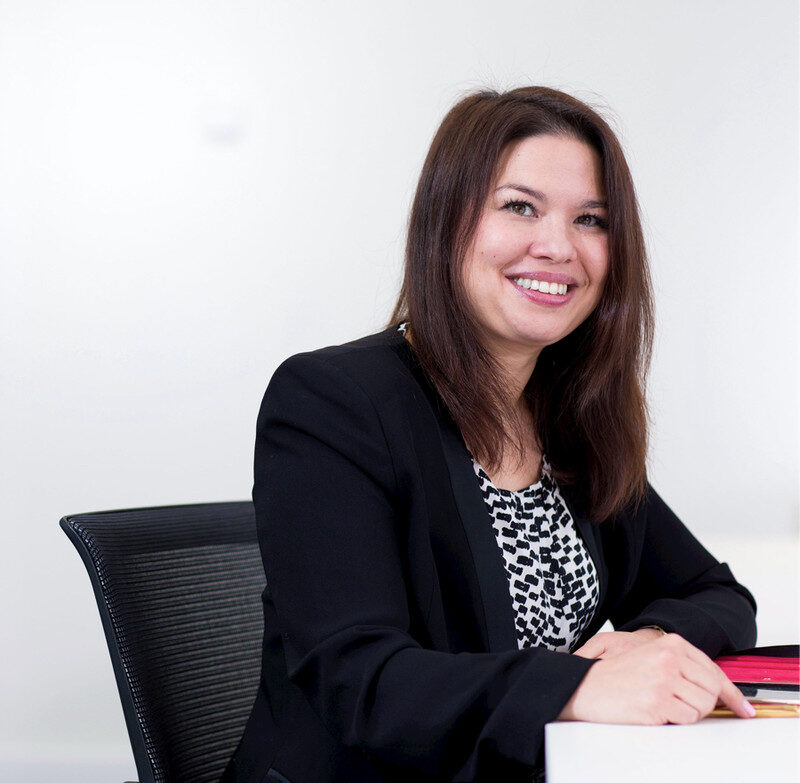Standing out in a male-dominated world: Nina’s story


Cyber security might be male-dominated, but Nina Paine is not letting that stop her from building a career in this sector. Freshly promoted to Managing Director in her role as Global Head, Cyber Partnerships and Third Party Security Risk Oversight, Nina has ambitious goals to drive change in the industry.
Deeply embedded biases
Going after cyber criminals is a concept that I’m no stranger to. I joined the Bank three years ago, after over a decade in law enforcement where I had the responsibility of combatting serious, organised crime causing harm to the UK. In my previous role, I was tackling cross-border problems, including Class A drug trafficking, human trafficking, cyber crime and money laundering.
I was always surrounded by men in my former workplaces. I remember walking into rooms where everyone present was male.
When my team and I would meet certain partner agencies for the first time, they would often mistake an older male staff member in the group for the boss. My team would be quick to explain that I was the leader, but these assumptions signal a deeply-embedded bias.
These situations are still happening out there. That’s why I’m so passionate about promoting gender balance in my role at the Bank.
Driving change
Here in Standard Chartered, I would describe my role as being a bridge that serves to communicate cyber security risk to internal and external stakeholders, making its technical aspects more accessible to senior executives. Third Party Security Risk Oversight entails partnerships with think-tanks, regulators and industry peers to improve the cyber security ecosystem.
A survey conducted last year by the UK’s Chartered Institute of Information Security, where I am a board member, found that 57% of women working in the industry believe it will take at least a decade for them to be treated the same as men, with 20% believing it will ‘never happen’.
In the Bank, we are working very hard to challenge this and achieve gender balance. We have made good progress within our CISRO (Chief Information Security Risk Officer) team, where 46% of our heads of teams are women – something that is rare in the industry.
I intend to use my position of privilege to drive further change. One scheme here that I’m proud to be a part of is the Bank’s Cyber Acceleration Programme, where any female in a junior to mid-level grade can apply to kickstart their career in this field. I helped to create this programme and now serve as a mentor.
You really don’t have to be a deep “techie” to thrive in cyber security – our industry welcomes people from all backgrounds, but you do need to be interested in the impact of technology on our business and society.
Standing out
I’m thankful for great managers – many of them male – who supported and gave me opportunities and a “safe space” to grow, make mistakes and learn over the course of my career. When I returned from my maternity leave on a then part-time basis, a previous boss even suggested a new, challenging but still manageable role that I could take on to help me juggle my responsibilities.
These experiences have shaped how I’ve grown as a leader myself.
In the past, there was a preference for a command-and-control type of leadership style. Thankfully, that has changed over the years. I personally have a very collaborative leadership style, something which is appreciated and valued here at the Bank.
One of the best pieces of advice I’ve received is to give the best you can each day. We all go through highs and lows in life – if that is the best you can do today, that’s okay. Tomorrow’s another day.
My advice for others to make progress in their career journeys? Volunteer for new opportunities – that is the best way to grow and learn as you put yourself out there. It certainly has helped me in mine.
As Martin Luther King once said: “If I cannot do great things, I can do small things in a great way”. To me, breaking the bias means having everyone onboard and making conscious daily efforts, no matter how small, to remove stereotypes, discrimination or assumptions.
We may stumble along the way, but we should still celebrate how far we have come even as we acknowledge how much further we still have to go.